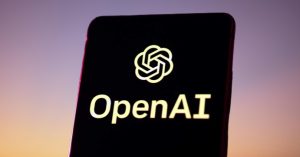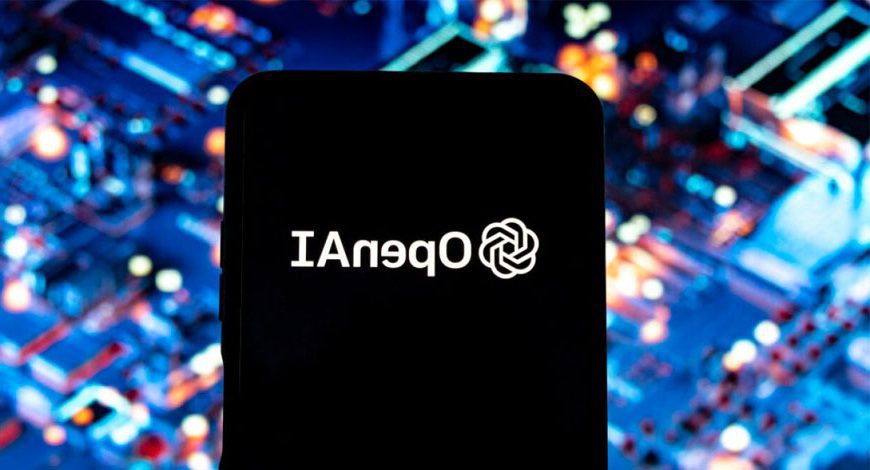OpenAI’s Head of Trust And Safety Steps Down : Dave Willner, OpenAI’s head of trust and safety, surprised everyone by announcing his intention to leave his position. Willner, who has been in charge of the AI company’s trust and safety team since February 2022, announced in a LinkedIn post his intention to move into an advisory position, citing a desire to prioritize spending more time in his family.
For OpenAI, the timing of Willner’s departure is crucial. Since their AI chatbot, ChatGPT, became so popular, the business has come under increased scrutiny from lawmakers, regulators, and the general public. Discussions about the future of AI have become very heated due to worries about the safety of OpenAI’s products and their potential societal effects.
Sam Altman, the CEO of OpenAI, had previously discussed the necessity of AI regulation at a Senate panel hearing in March. With an election coming up, Altman expressed concern about the potential misuse of AI, particularly in manipulating voters and spreading misinformation. In order to effectively mitigate these risks, he emphasized the significance of responsible use and careful management of AI technologies.
Willner’s LinkedIn post highlighted the difficulties that OpenAI is presently dealing with. The business is in the midst of a highly active development stage, with ChatGPT’s success driving the demand for more substantial safety precautions and responsible implementation. Since Willner joined the company, his role has expanded significantly, reflecting the company’s dedication to trust and security.
Read More :
OpenAI acknowledged Willner’s contributions in a statement, praising his fundamental work in operationalizing the firm belief in the responsible and safe application of their technology. His work has paved the way for more advancement in this area and helped to create a culture of confidence in AI technology.
As a result of Willner’s departure, OpenAI has appointed Mira Murati as the team’s temporary manager. Murati, who has a strong track record within the organization, will likely guide the group during this period of change.
Despite Willner’s decision to resign, OpenAI is still dedicated to advancing the responsible and safe application of AI technology. The business is actively looking for a technically qualified lead to build on Willner’s foundations and guarantee continued advancement in developing AI systems that prioritize user safety and well-being.
OpenAI has been actively collaborating with regulators in the US and other regions in addition to managing internal changes. The objective is to create standards and frameworks that control the ethical creation and application of AI technology. OpenAI seeks to navigate the complexities of AI governance while upholding high ethical standards by collaborating closely with regulatory bodies.


Read More : Cyber Legend Kevin Mitnick: A Legacy of Hacking And Redemption
Recently, OpenAI and six other top AI companies made voluntary commitments to improve the security and dependability of AI systems as part of a larger industry-wide initiative. This collaboration, carried out in cooperation with the White House, represents a step toward ensuring AI technologies are put through external testing before being made available to the general public. By clearly labeling such content to prevent misinformation and manipulation, the move aims to increase public confidence and trust in AI-generated content.
The world is currently debating the profound effects that AI will have on society, and Willner’s departure and the ensuing leadership transition coincide with this. Although AI has shown remarkable potential and advancements, there are valid worries about its application and effects on society. The dedication of OpenAI to confronting these issues head-on demonstrates a sincere desire to strike a balance between innovation and accountability.
The combined efforts of businesses like OpenAI, decision-makers, and the general public will determine the direction of AI technology in the future. To fully utilize AI for the benefit of humanity as the field develops, it is crucial to give transparency, accountability, and safety top priority.
In conclusion, Dave Willner’s choice to leave his position as head of trust and safety at OpenAI has started a new era for the business. In spite of increased scrutiny, OpenAI is unwavering in its dedication to responsible AI development and deployment. The change in leadership at OpenAI heralds the start of a new era in AI governanceone that seeks to balance innovation with ethical considerations and prioritizes the welfare of society above all elseas the world struggles with the complexities of AI technology. Building a secure and sustainable AI future will require ongoing collective collaboration and commitment to navigating the opportunities and challenges brought on by AI technology.
Also Read: Oppenheimer: A Compelling Historical Film Redefining Summer Blockbusters
Our Reader’s Queries
What is the controversy with OpenAI?
The OpenAI controversy highlights that the key players don’t fully understand the difference between the board and management roles. This is a big governance issue, not just in the tech industry.
Microsoft currently holds 49% of ownership in the pie, with other stakeholders also owning 49%. The original OpenAI non-profit foundation retains its autonomy, as the leading firm shapes the history of OpenAI.
Does Microsoft own OpenAI?
On Friday, Microsoft (MSFT.O) clarified that it has no ownership stake in OpenAI, a leading artificial intelligence entity.
Who is the chairman of OpenAI?
Sam announced his return to OpenAI as CEO, with Mira resuming her role as CTO. The initial board lineup will feature Bret Taylor as Chair, alongside Larry Summers and Adam D’Angelo.

